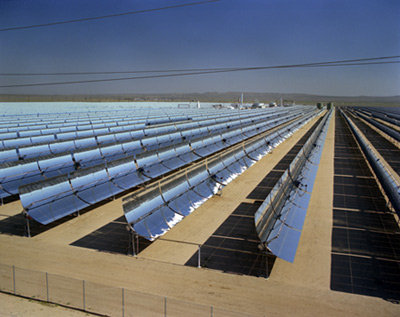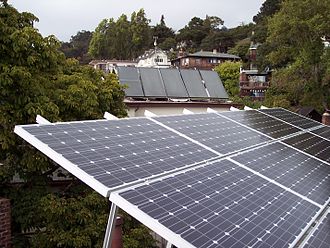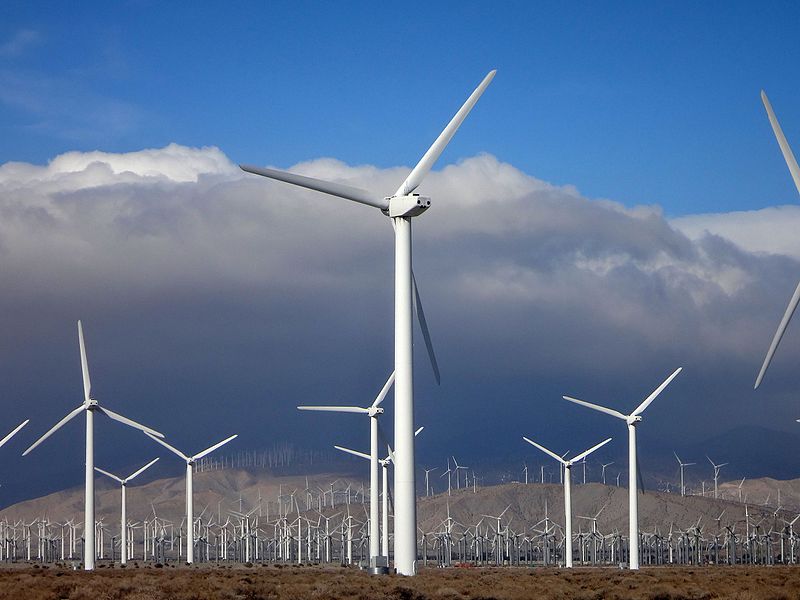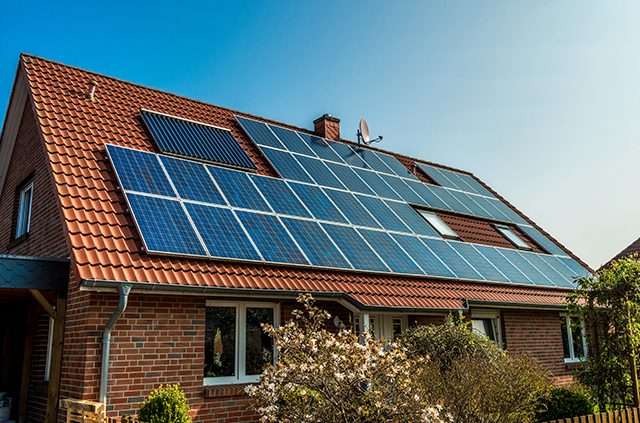
Solar electricity production. (Photo: energy.ca.gov)
CPUC Proposes Reduction in Discounted Energy Bills For Solar Customers
‘Energy companies have been trying to stop huge battery projects in recent years, and the last thing they wanted was subsidies for individuals’
By Evan Symon, December 13, 2021 3:46 pm
The California Public Utilities Commission (CPUC) sent in a reform proposal on Monday to reduce the energy bill discounts for people who install solar panels and storage systems.
The current law has been in the books since 1995. That year, then-Governor Pete Wilson signed into law SB 656, a net energy metering bill that allowed customers with on-site solar panels to receive electric bill credits for any surplus energy sent back to the grid. Designed to increase the number of solar panels in California and to reduce the need to fossil-fuel based energy sources, the incentive was included as a way for those who installed them to recoup the costs of the panel quickly.

As the power has been sold back at the retail rate, energy companies have complained that the savings are now so great that solar customers now don’t pay the minimum needed amount to help operate the grid. Specifically, as solar customers rely more on nighttime energy, energy companies have said they wanted those customers to help pay for nighttime operations, as different energy is generally needed at night.
In a separate proposal not picked up on Monday, Pacific Gas & Electric, San Diego Gas & Electric, and Southern California Edison recommended to remove the financial incentives. The solar industry, environmental groups, and consumer groups also introduced proposals decidedly more in favor of solar power.
According to CPUC Commissioner Martha Guzman Aceves, the reforms issued on Monday address the energy industries concerns while also continuing to push for solar energy. Instead of a total slashing, solar customers will instead get less money knocked off their energy bills that they currently get for selling excess energy back. An extra charge of $40 as a “grid participation charge” will also be added to address the nighttime usage situation.
All new solar customers will fall under the new regulations, with those who currently have panels not operating under the new system until the the panels are 15 years old.
As the California solar mandate has solar panels needing to be added to all new homes since 2020, all new construction will fall under the new proposed regulations.
Environmentalists and solar advocates blasted the plan on Monday as they note that cost recovery for installing the panels would be pushed back from an average of 11 years to 15 years under the plan. They note that many homeowners may not want to add panels under the new proposal, with many also noting that it only hurts California environmentally due to bringing in fewer people who want them.
“This decision by the commission to hobble rooftop solar could undo one of the nation’s most successful efforts to confront the climate crisis and move California to an electric grid powered by renewable energy,” said Environmental Working Group (EWG) President Ken Cook in a statement on Monday.
“Regulators’ caving to the demands of PG&E and the other investor-owned utilities in the state speaks volumes about their disregard for protecting ratepayers and their willingness to ignore the existential threat we face from global warming.”
“In the wake of the Dixie Fire, millions of people in the state suffered through another horrific summer of destruction as a result of PG&E’s reckless indifference when it comes to the safety of the state’s people and their property. And now the CPUC rewards that behavior by helping them crush the state’s rooftop solar program in a brazen and deceitful plot to increase profits for investors.”
However, others noted that despite the added amount for solar owner, the storage subsidies could be a long-term worse prospect for utility companies.
“Utility companies do not want to see energy storage batteries, especially those linked up to alternative energy,” Linda Graham, a solar energy storage coordinator, told the Globe Monday. “Energy companies have been trying to stop huge battery projects in recent years, and the last thing they wanted was subsidies for individuals on this. With these storage batteries, customers can still sell power back, but won’t need to pay anything for night usage. They can even sell back any extra at night.”
“The utilities really wanted the end or a drastic reduction in how much solar energy is sold back into the grid, so that’s why the storage incentive was added to the proposal. That’s less people reliant on them. One utility guy told us once that he hates it so much because during the wildfires when the energy went off for days, some houses with these storage systems stayed on, and desperate neighbors went to them. Within a year, people around them began putting in their own. It spread. That’s what the energy companies are fearing. But as the proposal proved today, they don’t like people with panels getting money back from them due to all the solar energy even more.”
The CPUC proposal is due to be voted on by a five member panel next month.
- Bill to Require Law Enforcement Disclosure if AI Was Used To Help Write Reports - August 7, 2025
- Gov. Newsom Files FOIA Request To ‘Expose True Cost’ Of L.A. Federal Troop Deployment for Anti-ICE Riots - August 6, 2025
- California Redistricting: How Newsom’s Plan Will Demolish Hard Fought GOP Gains - August 6, 2025





Thanks for this article. The power companies are disingenuous but this is no surprise. The CPUC is in their pockets. I have had solar on my ranch in the Northern California foothills for 9 years and I am just breaking even on paying for it. Once a year PG&E sends a “True-Up” bill for settling how we overused or under used from their grid. Last True-up, my system gave 1057 Kwh back to the grid. The Net Surplus Credit was -$27. If I had used that much more than my solar supplied instead, my cost would have been $282 They have already given themselves more than 90% discount on my surplus energy. Now they want to discount it more? If the CPUC allow this to proceed, they are not operating in the interests of the power users, rather in favor of their benefactors, the power companies.
It does seem fair that those getting money back for producing more than used get paid what power companies would pay from large wholesaler as they have grid maintenance costs.
I think I recall reading that the property tax exemption for solar might go away in a few years? Can the Globe do an article on solar and property taxes please?